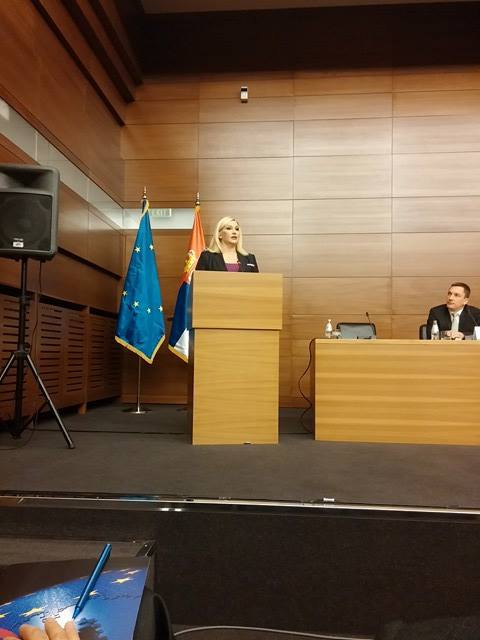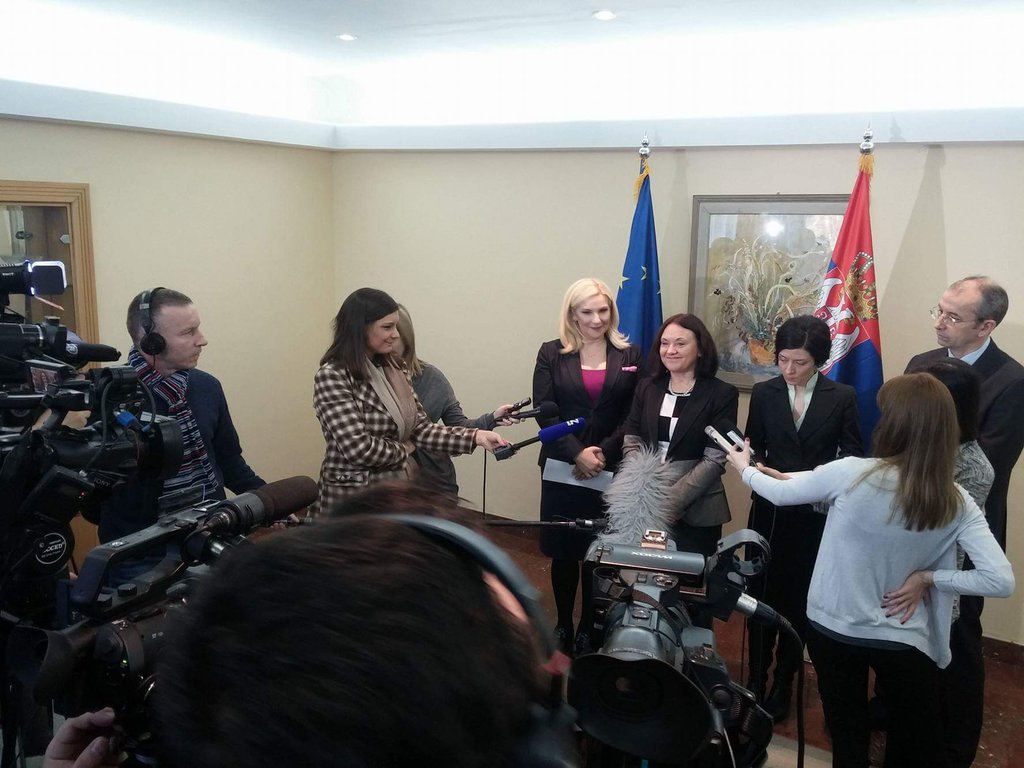 Prof. Dr Zorana Mihajlović
Prof. Dr Zorana Mihajlović
Deputy Prime Minister and Minister of Construction, Transport and Infrastructure
President of the Coordination Body for Gender Equality
The Republic of Serbia is the first country outside the European Union which has introduced the EU Index of Gender Equality. Before you is the First Report on the Index of Gender Equality in the Republic of Serbia for 2016.
The Gender Equality Index is a measuring instrument of the European Union which measures gender equality on a scale of 1 (complete inequality) to 100 (complete equality) in six domains: knowledge, work, money, health, time, power, and two satellite domains: violence and intersecting inequalities.
The gender equality index in the Republic of Serbia is 40.6%, and the index of the EU Member States is 52.9%. This number shows that Serbia has almost reached the halfway point towards achieving gender equality according to European standards. The greatest success in terms of gender equality has been achieved in the domain of power at the national level, which shows that the introduction of quotas for women’s political participation has been successful. On the other hand, the biggest setback in achieving gender equality in relation to the EU was recorded in the domain of work and money. The gender equality index proves that the measurement of gender equality is highly important for developing public policies and measures in this field.
The initiative for calculating the Gender Equality Index in the Republic of Serbia was launched by the Coordination Body for Gender Equality of the Government of the Republic of Serbia, the Social Inclusion and Poverty Reduction Unit of the Government of the Republic of Serbia and the Statistical Office of the Republic of Serbia, with the great support of the European Institute for Gender Equality in Vilnius, which developed the index in the EU. For the purposes of measuring the Gender Equality Index, the Working Group of the Government of the Republic of Serbia was established, where we had an open debate about which indicators should be used. The Working Group comprises female and male representatives of all relevant public institutions, civil society organisations, as well as the professional and academic community.
In the last two years, Serbia has made gender equality a priority area in terms of structural reforms and public policies. It formed the Coordinating Body for Gender Equality, adopted the new National Strategy for Gender Equality (2016-2020) and the accompanying Activity Plan (2016-2018), drafted a new law on equality between women and men which is to be adopted and introduced gender budgeting in public finance. These documents, together with measurement indicators and the institutionalisation of gender equality will help us develop measures for achieving greater equality between women and men in our society.
The path to achieving full gender equality is very complex and demanding and requires political will, effective coordination of all gender equality mechanisms, both at the national and local level, as well as their effective implementation at all levels.
Our country’s political goal is to join the European Union. This means that all our citizens, both men and women, should be provided with a decent standard of living and working in the Republic of Serbia. Therefore, we should strive to help our country reach gender equality, banish stereotypes about male and female gender roles and eliminate gender-based violence. Gender equality should become a principle by which public policies are formed as well as the lifestyle of every man and woman. Therefore, it is with great pleasure that we introduce the Gender Equality Index and I call on all stakeholders in our society to help us realise the vision of development which will enable a better future for us all.
Introduction for the Report on Gender Equality Index in the Republic of Serbia
***
 The Deputy Prime Minister and President of the Coordination Body for Gender Equality Prof. Dr Zorana Mihajlovic opened the conference launching the Gender Equality Index for the Republic of Serbia on Februar 2, 2016.
The Deputy Prime Minister and President of the Coordination Body for Gender Equality Prof. Dr Zorana Mihajlovic opened the conference launching the Gender Equality Index for the Republic of Serbia on Februar 2, 2016.
Serbia is the first non-EU country to introduce the EU Gender Equality Index.
The initiative for calculating the Gender Equality Index for the Republic of Serbia was launched by the Gender Equality Coordination Body of the Government of Serbia, the Social Inclusion and Poverty Reduction Unit of the Government of the Republic of Serbia and the Republic Statistical Office, with substantial support of the European Institute for Gender Equality in Vilnius, as a creator of the EU Index.
The conference was addressed by the Deputy Prime Minister and President of the Coordination Body for Gender Equality Prof. Dr Zorana Mihajlovic, EIGE Director Virginija Langbakk and Head of the EU Delegation Michael Davenport.
 Government of the Republic of Serbia
Government of the Republic of Serbia















 pdf [271 KB]
pdf [271 KB]
Leave a Comment